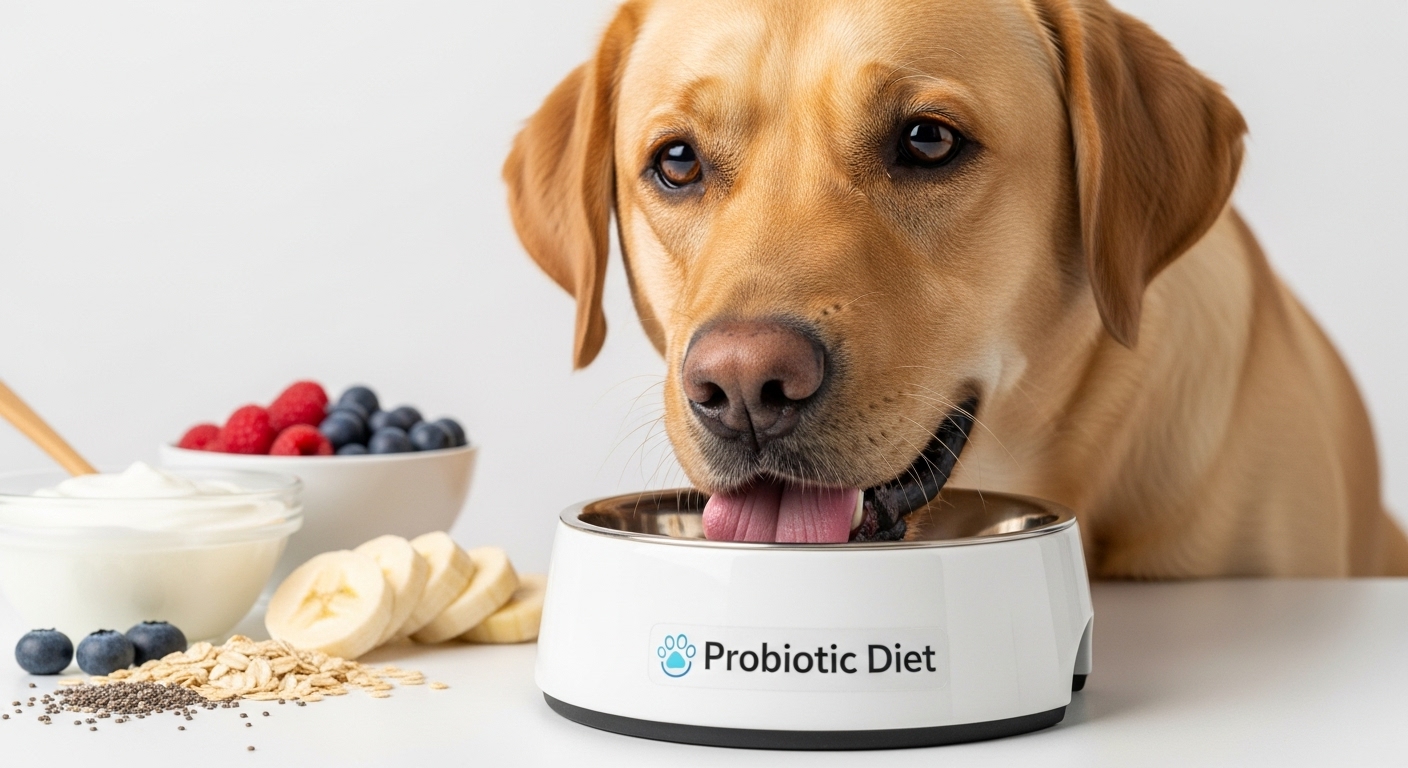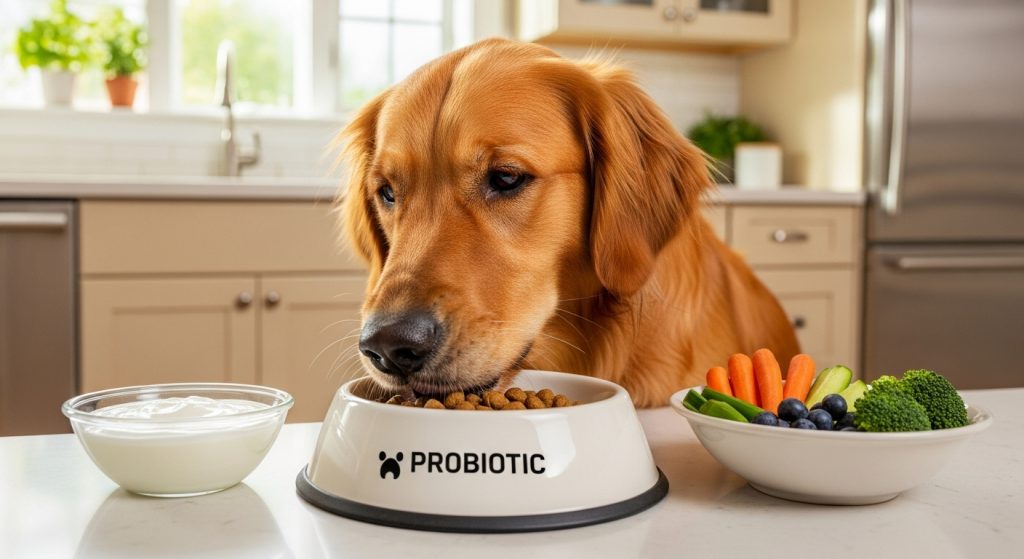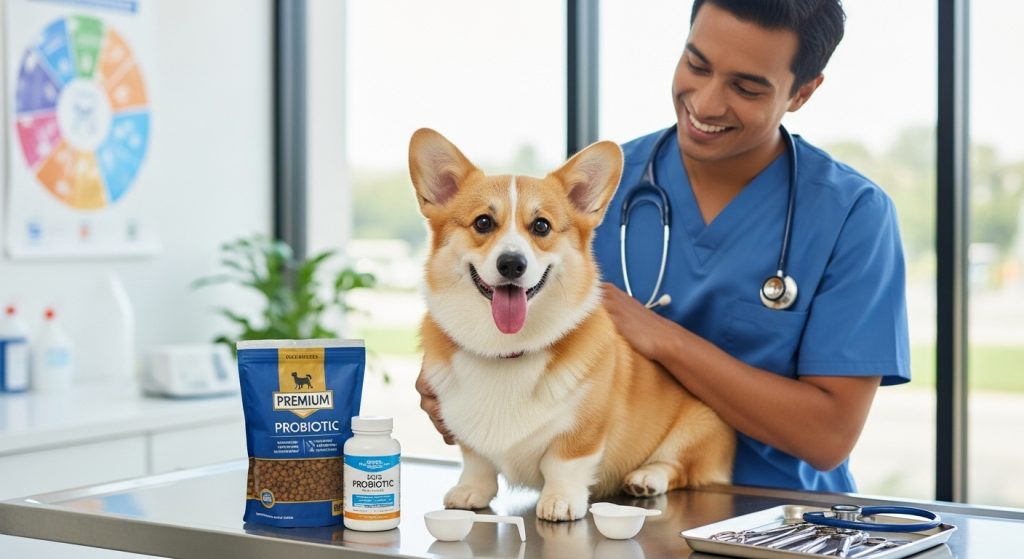As pet owners, we always want what’s best for our furry friends — from premium food to supplements that promise better health. One of the biggest trends in the pet industry right now is probiotic diets for dogs. But what exactly are probiotics, and do they truly make a difference to your dog’s wellbeing?
In this article, we’ll explore why probiotics have gained popularity, how they work inside your dog’s digestive system, and whether they are genuinely worth adding to your pet’s daily diet.
Understanding Probiotics in Dog Nutrition
The term probiotics refers to live microorganisms — usually bacteria or yeasts — that offer health benefits when consumed in the right amounts. In humans, probiotics are linked to gut health, immunity, and even mental well-being. Now, this concept has extended to dogs as well.
A dog’s digestive system is a complex ecosystem containing billions of bacteria. These microorganisms help digest food, absorb nutrients, and prevent harmful pathogens from growing. However, factors like antibiotics, poor diet, or stress can disrupt this balance, leading to digestive issues such as diarrhea, constipation, or bloating.
This is where probiotic diets for dogs come in. By introducing beneficial bacteria like Lactobacillus and Bifidobacterium, probiotics help restore balance in the gut microbiome. As a result, many dog owners report improvements in digestion, reduced flatulence, and even shinier coats.
However, not all probiotics are created equal. The effectiveness depends on:
-
Strain specificity – Different bacterial strains have different effects.
-
Dosage and survival rate – Some probiotics may not survive the acidic stomach environment.
-
Product quality – Only high-quality products ensure that live bacteria reach the intestines.
Before you start supplementing your dog’s diet, always consult a veterinarian for advice on appropriate strains and dosage.
The Benefits of Probiotic Diets for Dogs
The increasing popularity of probiotic diets for dogs isn’t just marketing hype — several studies and real-world cases have shown notable health benefits. Here are the top reasons many veterinarians recommend probiotics:
1. Improved Digestion
Dogs with sensitive stomachs or recurring digestive issues benefit the most. Probiotics help balance gut flora, aiding in nutrient absorption and reducing symptoms like gas, bloating, and loose stool.
2. Strengthened Immune System
Around 70% of a dog’s immune cells are located in the gut. A balanced gut microbiome strengthens your dog’s immune response and helps fight infections naturally.
3. Allergy Relief
Dogs suffering from skin allergies or food sensitivities often show improvement after taking probiotics. The healthier gut flora helps modulate inflammatory responses and reduce itching or redness.
4. Better Mood and Energy
Yes, gut health affects mood! The gut-brain axis in dogs works similarly to humans. Dogs with a balanced digestive system often appear more energetic, playful, and less anxious.
5. Support During Antibiotic Treatments
Antibiotics, while essential for treating infections, can destroy beneficial bacteria in the gut. Probiotics help replenish these good bacteria, reducing side effects and promoting faster recovery.
To maximize these benefits, consistency is key. Integrate probiotics gradually and observe how your dog responds over a few weeks.
Are Probiotic Diets for Dogs Worth It?
So, are probiotics really worth it? The answer depends on your dog’s health condition and diet.
For most dogs, adding probiotics can be a valuable part of preventive care. They can help maintain a strong immune system, reduce digestive problems, and improve overall vitality. However, it’s crucial to choose the right product and dosage.
When shopping for probiotic supplements or probiotic-infused dog food, consider:
-
Label transparency: Ensure the product lists specific probiotic strains and CFU counts.
-
Veterinary recommendation: Avoid cheap, generic brands with unverified ingredients.
-
Storage and shelf life: Probiotics are living organisms; proper storage (often refrigeration) is essential for effectiveness.
For dogs with chronic digestive issues, allergies, or weakened immunity, probiotics may offer noticeable improvement. On the other hand, if your dog is already on a balanced diet and shows no health issues, probiotics might not be necessary — but they likely won’t hurt.
The rise of probiotic diets for dogs shows how much we value our pets’ well-being. Science supports many of these benefits, though results may vary between breeds and individuals. As always, talk to your vet before introducing new supplements. When used correctly, probiotics can be a simple yet powerful way to help your dog thrive from the inside out.




